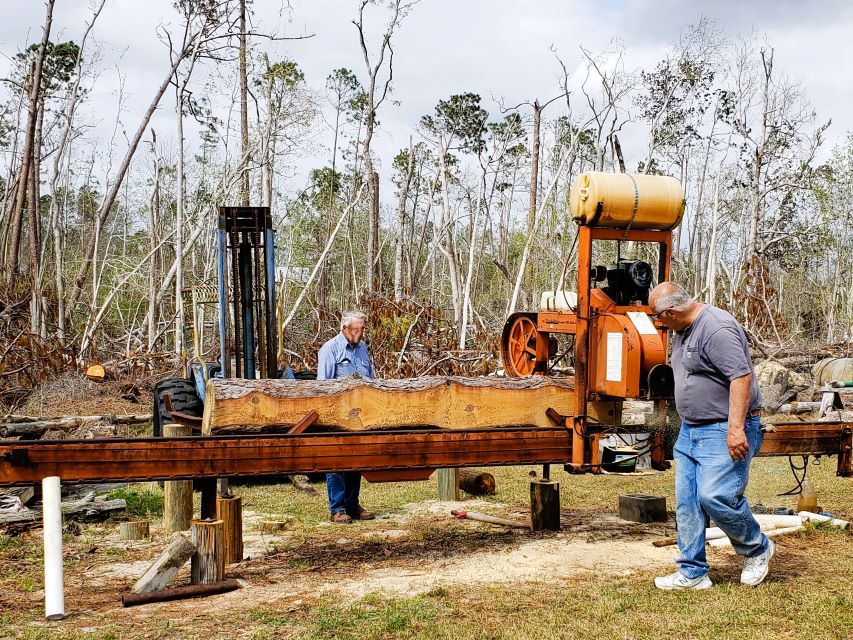Using this old portable sawmill to mill lumber is considered hard skills.
Hard And Soft Skills
Growth occurs when individuals confront problems, struggle to master them, and develop new aspects of their skills, capacities and views about life.”
Carl R. Rogers (1902-1987)
There are two types of skills: hard skills and soft skills. In its most basic form, a skill is the ability to do a task. If you are “good with computers”, you may have been taught how to use or program a computer (hard skills). Or, you may have an intuitive sense about how to operate or code a computer (soft skills).
People can have both sets of skills, but generally you lean on your hard skills (what you have learned) or your soft skills (what you intuitively know).
Hard Skills
Hard skills are developed through formal education, on-the-job training, internships, a residency, apprenticeships, or certificate programs. Though you may have a knack for carpentry, you were not born knowing how to use a nail gun. Someone taught you how to do that.
Careers or professions are based on hard skills. You can see a certificate or diploma on the wall. You can observe or experience the hard skills of a surgeon, a computer repair technician, or a carpenter.
An example of a profession with hard skills is a neurosurgeon who may have eight to twelve years of formal post-secondary education and then three years in a residency program. Someone who graduates from Hamburger University and then goes on to an apprenticeship at a fast-food restaurant has also attained hard skills.
Being able to identify your hard skills improves your self-esteem by recognizing what you put time and effort into learning.
Examples of Hard Skills
- Accounting
- Automotive repair
- Cooking
- Data analysis
- Finance and banking
- Language proficiency
- Graphic design
- Health care industry
- IT skills
- Machine operation
- Teaching
- Welding
Soft Skills
Soft skills are different from hard skills. While some soft skills can be formally taught through education or an apprenticeship, the overwhelming percentage of soft skills are intuitive, or skills you are born with.
If one of your soft skills is motivational leadership, you will be able to be a motivational leader at your very first job flipping burgers at a fast-food restaurant all the way to being the CEO of a multimillion-dollar corporation.
Soft skills are not restricted to any specific field. If you have the soft skill of being proficient at de-escalating tense situations, you could use that skill as a hostage negotiator, a service writer at a car dealership or being a high school principal. These are all jobs with differing levels of intensity, but all require someone who can be cool and calm in stressful situations.
While you can teach someone what de-escalation skills are and what situations to use them in, most people who are good at this skill come by it intuitively. It is a 6th sense.
Identifying your soft skills will help you improve your self-esteem. These soft skills are part of your core knowledge base that you can transfer from job to job, situation to situation.
Examples of Soft Skills
- Ability to work under pressure
- Analytical skills
- Delegation
- Decision making
- Detail oriented
- Innovator
- Listener
- Motivator
- Negotiator
- Organizational skills
- Planning
- Public speaking
- Stress management
- Team building
Relationships Relearned: Learn. Unlearn. Relearn
How do your hard and soft skills impact your relationships with others? To be in a healthy, successful relationship, what you learned in childhood about relationships may need to be unlearned and relearned in a different way as an adult.
What you learned in childhood about hard and soft skills might center around communication. You may have watched your parents or caregivers communicate in a trusting, respectful manner. Intuitively they may have been great communicators, or perhaps they had to work hard at learning how to say what they were thinking. This may have been accomplished by reading self-help books or even by therapy.
Or, in childhood you may have experienced two parents or caregivers who were poor communicators. You may have observed the one who spoke the loudest or the fastest was the one that was “heard”.
As an adult, you may have to unlearn what you learned from your parents about communication. And then relearn new healthier skills.
Take Away Point
Recognizing, understanding, appreciating and valuing your hard and soft skills is important. It may be “easy” to recognize your hard skills. You have gone to school and taken a course or have been an apprentice. You have put in time learning these skills.
Because they are so intuitive, and come so easy to you, it is much more difficult to recognize and appreciate your soft skills. Not everyone can successfully plan the office holiday party or summer cook-out. Not everyone is able to successfully work under pressure or make decisions on the fly. Spending time identifying your soft skills and then appreciating and valuing them may even lead you to recognizing even more soft skills! What are you waiting for?
With warmest regards,
Thank you so much for reading this blog. If you enjoyed the content, please check out other blogs at:
https://relationshipsrelearned.com/my-blog/
https://rvingnomads.com/blog/
In addition to blogs and articles, I have written a series of self-help books. To view these books, please go to my Amazon Authors Page or go to the My Self-Help Books tab at the top of this page.
To be notified of future posts, please enter your email address and click on the Subscribe button.
| AI has not been used to create any content for my website, articles, blogs or books. All material is original unless otherwise noted. All photos and graphics within my website and blogs were taken or created by David Harrington or Kathryn Maietta. |












